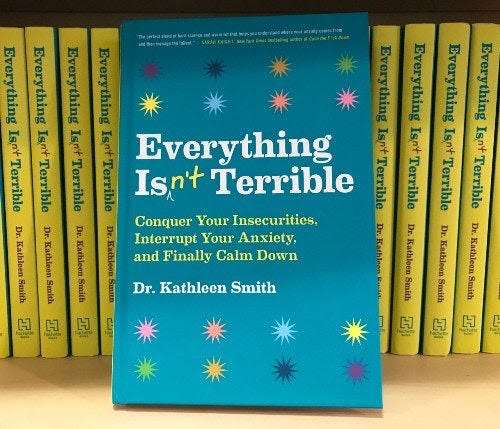It's Your Responsibility to Be Self-ish
How managing other people's emotions can make you less capable.
Do you ever become less capable when you can sense that someone is upset with you? If I worry about an editor being disappointed with me, I’m a less productive writer. If I know that a therapy client is unhappy with our work, I tend to become a less effective counselor. Sometimes it takes me months to send a thank you card, because I imagine how disappointed a person might be with its delay.
It is nearly impossible to manage one's self when you become over-responsible for other people's emotions, thoughts, and behaviors.
We are all sensitive to the emotional reactions of others, but we vary in that sensitivity. Often our experiences in our family teach us how much disagreement, disapproval, or rejection are to be feared and avoided. When agreement, approval, and praise are valued above living out one’s own best thinking, then we need these things to stay calm and motivated.
To upset as few people as possible, you become an expert at deciphering their emotions. You dedicate an enormous amount of time and energy guessing what they’re thinking or feeling, or trying to pry that information out of others.
What does it look like to be more responsible for yourself, and less responsible for everyone else’s emotions? To embody your own definition of being your best self, instead of solely preventing upsetness in others?
Being less responsible for others could look like:
Not trying to mind read so much.
Letting people be upset without trying to fix their problems.
Letting people do something more slowly or less efficiently than you would.
Letting people navigate their own relationships with others.
Letting people try and fail at something.
Treating people like they can handle your thinking.
Letting people reject your work.
Not turning other people into projects when you feel bored or anxious.
Being more responsible for yourself could look like:
Getting clearer about your own beliefs, values, etc.
Taking more responsibility for your physical and mental health.
Constructing a clearer definition of how you want to function.
Getting interested in setting and completing goals.
Learning to better self-regulate your own emotional reactivity.
Practicing defining your thinking to others.
Being more present and thoughtful in important relationships.
As nice as it sounds, being more self-directed is an anxious endeavor. But over time, your brain begins to learn that negative emotions in others are survivable. And that you are only responsible for your own responses. It’s such an easy thing to know, and a hard thing to embody.
Additional questions:
What are the relationships where I’d like to be less other-focused and more self-focused?
Are there goals or tasks in my life where other-focus has kept me stalled?
What would it look like to be guided by my own thinking instead of the real or perceived reactions of others?
News from Kathleen
Want to read more of my writing? I’ve started writing a weekly essay for Medium’s Forge Magazine.
Buy my book Everything Isn't Terrible from Amazon, Barnes and Noble, Indiebound, or anywhere you buy books!
Get a free Anxiety Journal - Calming Down & Growing Up: A 30 Day Anxiety Journal includes thirty daily prompts to help you reflect on and respond to your anxious behaviors. To receive a copy, submit a copy of your receipt for my book at the Hachette page. Or you can email me.
Check out my website for past newsletters about anxiety and relationships. Follow me on Twitter, Facebook, or Instagram, or email me if you have questions about my therapy practice in Washington, DC or want me to speak to your group. Visit the Bowen Center’s website to learn more about Bowen theory, as well their conferences and training programs.



